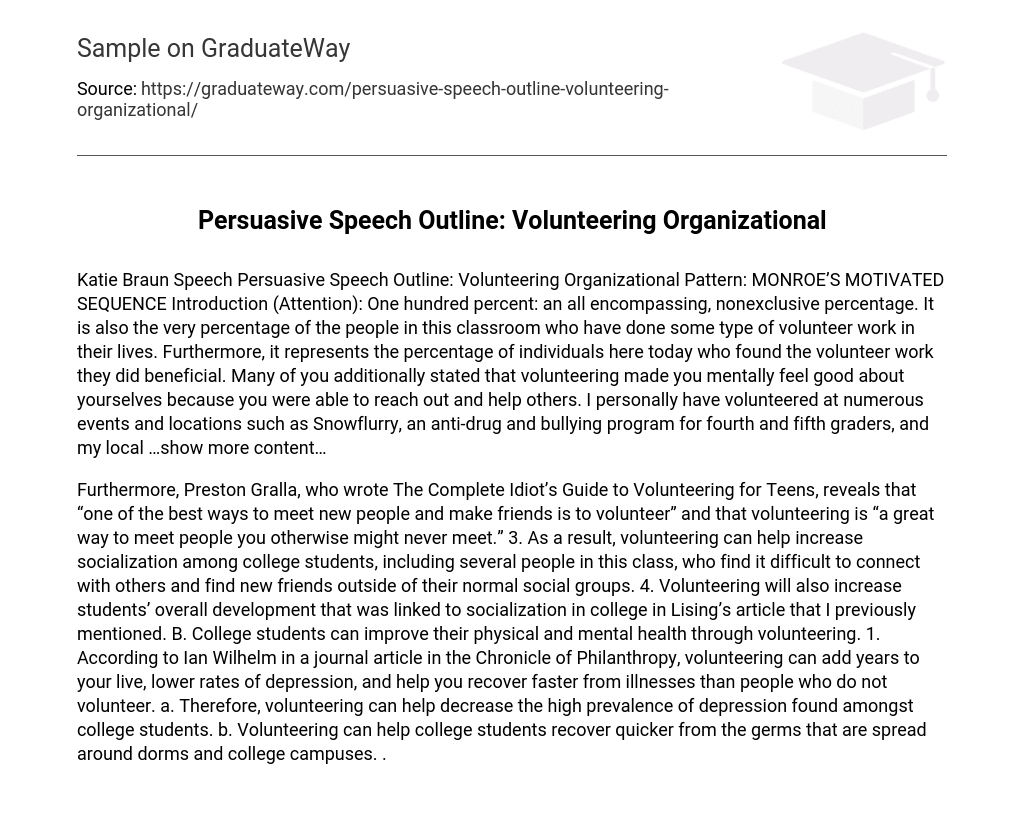One hundred percent: an all encompassing, nonexclusive percentage. It is also the very percentage of the people in this classroom who have done some type of volunteer work in their lives. Furthermore, it represents the percentage of individuals here today who found the volunteer work they did beneficial. Many of you additionally stated that volunteering made you mentally feel good about yourselves because you were able to reach out and help others.
I personally have volunteered at numerous events and locations such as Snowflurry, an anti-drug and bullying program for fourth and fifth graders, and my local.Furthermore, Preston Gralla, who wrote The Complete Idiot’s Guide to Volunteering for Teens, reveals that “one of the best ways to meet new people and make friends is to volunteer” and that volunteering is “a great way to meet people you otherwise might never meet.”
As a result, volunteering can help increase socialization among college students, including several people in this class, who find it difficult to connect with others and find new friends outside of their normal social groups. Volunteering will also increase students’ overall development that was linked to socialization in college in Lising’s article that I previously mentioned.
College students can improve their physical and mental health through volunteering. According to Ian Wilhelm in a journal article in the Chronicle of Philanthropy, volunteering can add years to your live, lower rates of depression, and help you recover faster from illnesses than people who do not volunteer. Therefore, volunteering can help decrease the high prevalence of depression found amongst college students. Volunteering can help college students recover quicker from the germs that are spread around dorms and college campuses.





